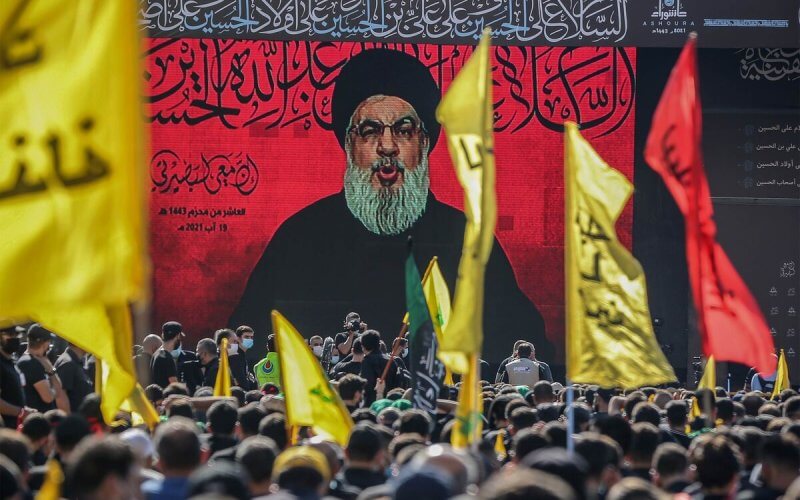On Thursday, United States officials revealed that they are looking at a rising risk of Iran-backed Lebanese Hezbollah terrorist fighters striking Americans in the Middle East and even potentially hit inside the U.S. homeland.
Officials believe the Iran-backed group would most likely target American personnel in the Middle East first. Officials also added that intelligence agencies are gathering data on Hezbollah that shows it could be considering attacks on American troops in the region or diplomatic personnel.
"Hezbollah could draw on the capability they have to put people [in] places to do something," a U.S. intelligence official told Politico. The same official referred to a potential attack on American soil. "It is something to be worried about."
Officials declined to talk about the specific kind of attacks Hezbollah could take.
"Cancers left untreated spread. Hezbollah declared war on America in 1983," explained Michael Rubin, a senior fellow at the American Enterprise Institute (AEI), where he specializes in Iran, Turkey, and the broader Middle East.
"The United States should have erased the group from the face of the earth then," he said.
"That it has repeatedly let the group grow and signed off on nod-and-wink false U.N. promises to prevent the group's rearmament is a stain on both Democratic and Republican administrations," Rubin added.
Josh Block, an adjunct fellow at Hudson Institute and foreign policy scholar and political strategist, noted that Iran and its terrorist army Hezbollah have "killed more Americans than anyone but al Qaeda."
"Now, we see Russia, China, North Korea, and Iran forming their axis, while Iran's proxies Hamas, Hezbollah, and Houthis are on the offensive, attacking Israel, our allies, and the U.S., even here in the homeland," he added.
Officials did note that the Iran-backed terrorist group has resources that other Islamist terrorist groups in the region do not. Officials say an attack domestically or on troops or diplomats overseas would deal a significant strike to the Biden administration, which has tried to prevent the Israel-Hamas conflict from broadening into a wider regional war.
"Might the group target Americans in the Middle East? That would be nothing new. Could they strike in the United States? It is a matter of time. The idea that Americans can stand aloof, wagging their fingers at those serious about counterterrorism, and face no consequence as the cancer spreads is as naive as it is deadly," Rubin told The Foreign Desk.
Such an attack would also likely push Washington back into the Middle East at a time when the Biden administration is trying to focus its national security resources against China and Russia.
Senior Biden administration officials have publicly said that following the Oct. 7 attack last year by Hamas against Israel, they believed Tehran and its proxies were not seeking a wider regional war or a confrontation with the U.S.
American troops in the Middle East have been attacked by Iranian proxy groups in Iraq and Syria, including Harakat-al-Nujaba and Katib Hezbollah. These militias have launched at least 127 attacks on American forces in Iraq and Syria since Oct. 17. The U.S. has hit back against such strikes multiple times, including a Jan. 4 drone strike in Baghdad, Iraq, that killed a senior Iranian-proxy leader.
While it is unknown the extent to which Hezbollah coordinates with other Iranian terrorist proxy groups, top intelligence officials in Washington have determined that it has the same goals of disrupting America's military position in the region and seeking opportunities to strike U.S. troops.
Following the Oct. 7 massacre by Hamas against Israel, Hezbollah has launched several missiles against Northern Israel while ordering troops to try and infiltrate the Jewish state. The support from Iran to Hezbollah comes at a time when the regime is relying heavily on Russia and China to provide weaponry and resources against international sanctions.
"To restore deterrence against Iran - and undermine the NK, Russia, China, and Iran nuclear axis, the U.S. should immediately act to utterly destroy Iran's illegal nuclear weapons infrastructure and its military command & control," Block told The Foreign Desk.
Related Story: Who is Hezbollah?









